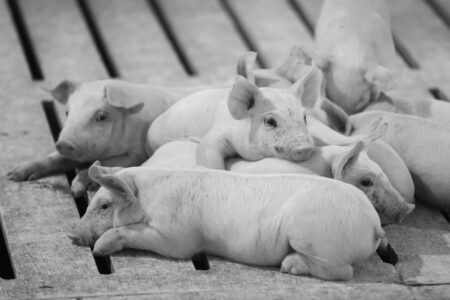Populism can win back working class voters
New research shows that progressive economic policies can bring working-class Trump supporters back into the Democratic Party
The Democratic Party lost big in 2024. If it hopes to bounce back, making inroads with the working class is the only way possible — and a new report from the Center for Working-Class Politics and Jacobin shows that economic populism is the best path to bring them back.
Democrats have historically counted on the votes of working class Americans, but that’s changed as white working class voters defected to Trump and the GOP. In the last cycle, Latino men and even a significant number of Black men swung to the GOP as well.
By 2024, the Democratic leadership had firmly committed to its strategy of appealing to suburban moderates at the cost of blue-collar voters. Back in 2016, Senator Chuck Schumer famously articulated this logic: “For every blue-collar Democrat we lose in western Pennsylvania, we will pick up two moderate Republicans in the suburbs in Philadelphia, and you can repeat that in Ohio and Illinois and Wisconsin.”
But that strategy hasn’t kept the party competitive in much of the country. Is it too late to turn back to the blue-collar voters it left behind years ago?
Our new report, which analyzes responses to 128 survey questions from gold standard academic surveys, finds that championing progressive economic policies can reverse the exodus of blue-collar voters from the party. It can also help us understand why those policies resonate most with working class voters.
Contrary to what many expect, the working class has become both more progressive on economic issues and less conservative on social issues in recent decades. From abortion and gun control to gay rights and views on racial inequality, the working-class today is, if anything, more progressive than the working class that helped elect Barack Obama in 2008.
But this has been easy to miss, because the upper and middle classes have moved left at an even faster rate over the same time period. And relative to the middle and upper classes, economic populist policies resonate more with working-class voters, while socially progressive policies resonate less.
Our report shows the overwhelming popularity of a host of economic populist policies. Increasing the minimum wage, increasing government spending on healthcare and social security, protecting jobs with import limits, and spending more on the poor are all examples of policies that we found resonate with an overwhelming majority of the working-class.
Our analysis challenges oft-repeated stereotypes about the supposed conservative drift of the working-class. For example, there are many who seem certain that the economic policies that helped propel Zohran Mamdani to victory in New York City’s recent Democratic mayoral primary would be disastrous outside of the city’s liberal bubble.
That conventional wisdom doesn’t hold up in polling.
For example, we found that about one out of every five working-class people who voted for Trump in 2020 also favored a four-policy package that included increasing income taxes on million dollar per year earners, increasing federal spending on public schools and social security, and raising the federal minimum wage.
Even more surprising, support for a millionaire’s tax was 44 percent among working-class 2020 Trump voters. This is only one example, but we’ve identified quite a few ways Democrats can appeal to working-class voters without sacrificing a strong economic program.
Our analysis shows that Democrats can win back working class votes from the GOP — without championing regressive social policies. But it requires leading with bread-and-butter economic policies that are overwhelmingly popular with working-class voters.
Ultimately, this isn’t about the political fortunes of one party or another. As more Americans struggle to afford the cost of living and the gap between the rich and the rest only grows, it’s about whether ordinary people have a voice in the decisions that affect their lives.
Let’s hope the Democrats pay attention.
——-
Sean Mason is a data scientist and research associate at the Center for Working-Class Politics. A longer version of this op-ed first appeared at Inequality.org. This version was distributed by OtherWords.org.



